081214_YKBP_A 12.pdf




12 Broadcaster Press
August 12, 2014 www.broadcasteronline.com
Combatting PED:
1870
Manure applicators shifting practices to
control new pig disease
By Rita Brhel
be fenced off at the
perimeter with a locked
gate at the entrance and
signs warning people of
the farm’s biosecurity
policy. The farm office is
advised to be located near
the gate, to have its own
kitchen so farm workers
aren’t leaving the grounds
during the work day for
meals. Employees should
not live at another hog
farm or have contact with
pigs outside of their
workplace. Visitors should
be kept at a minimum and
not allowed to have pig
contact at least 24 hours
before arriving that the
hog farm. A sign-in visitor
book helps with
traceability. All doors
should be locked and a
buzzer available for
visitors. No pets allowed.
Also, all farm workers
and visitors are required
to have a shower before
entering the facilities,
with farm clothes
provided to prevent
contamination from the
clothes and jewelry. A
clothes washer and dryer
on the premises prevent
farm clothes from being
contaminated by being
removed from the farm to
be cleaned. There should
be separate farm workers
for the main herd and for
the pigs kept in isolation,
and farm chores should
be done in a certain order
from highest health status
to lowest. All rooms are
recommended to be
cleaned with a power
washer and then
disinfected with certain
products. Facilities need
to be rodent-proof; any
pest problems should be
eliminated by a
professional exterminator.
Vehicles should not be
allowed on the hog farm
without cleaning and
disinfecting. Pigs should
be moved as a group in an
“all in-all out” manner
during each production
stage.
As is evident,
P&D Correspondent
EDITOR’S NOTE: This
is the second of a twopart series looking at the
impact of the Porcine
Epidemic Diarrhea (PED)
virus.
Producers,
veterinarians and industry
officials across the United
States have been
scrambling for the past
year to keep a rapidly
spreading, and very costly,
pig disease — Porcine
Epidemic Diarrhea (PED)
virus — from decimating
the pork industry. One of
the mainstays in
controlling PED infection
in swine herds has been
the industry’s typically
high level of biosecurity,
focusing primarily on
preventing crosscontamination from
infected manure.
Biosecurity is a
complicated matter for
hog producers, said John
Carney, executive director
of the Manitoba Livestock
Manure Management
Initiative (MLMMI) in
Winnipeg, Manitoba,
Canada.
“The thing is, all those
judgments cost money,”
he said.
The list of biosecurity
measures possible is long
and includes such
practices as spacing
individual swine herds a
minimum of 1 1/2 miles
from each other, with
attention given to wind
direction, land
typography and presence
of natural trees or
shelterbelts. Producers are
told to keep in mind the
proximity to wildlife and
other farm animals, even
hogs part of the same
herd but kept in different
buildings. Facilities
should be located away
from public roads, even
farther if there is swine
traffic on a particular
road. The operation could
Ag Equipment
Want to buy: JD & IH
mounted field cultivator. Small
square baler. JD 8300 or IH
510 grain drill. JD 7000
planter. Manure spreader.
(605)661-6335.
1875
“There are all kinds of changes that manure applicators have or are making in response
to PED. Cleaning, disinfecting and drying was by far and away the hardest for them to
implement. Closely related, sanitation and down time has proven difficult.”
Livestock - Poultry
Horses and tack for sale. 1
mare and 2 geldings. Lots of
tack. Moving, all must go.
(605)660-0689.
2000
JOHN CARNEY OF MANITOBA LIVESTOCK MANURE MANAGEMENT INITIATIVE
biosecurity at hog farms
can be as thorough as
possible. But, Carney said,
producers need to be able
to discern what protocols
work best and when in
order to keep production
costs down. This is
particularly true when
deciding what biosecurity
measures to add to hog
farm to help control a
new disease like PED.
“I like the phrase, ‘Start
right, end right,’” Carney
added.
To help pinpoint costeffective protocols specific
to PED, the MLMMI in
conjunction with the
University of Wisconsin
in Madison conducted a
survey in July 2104 of
commercial manure
applicators — one of the
few non-farm trucks
allowed onto the grounds
of most high-level
biosecurity hog farms —
of what measures they’re
taking to prevent the
spread of PED and what
swine producers can do to
help them to better ensure
success.
The survey collected
anonymous information
from an online survey as
well as a paper survey
distributed at the 2014
North American Manure
Expo in Springfield,
Missouri. There were 47
respondents from 15
states and provinces in the
United States and Canada.
Of the respondents, 96
percent have or are
making changes to their
procedures as a result of
PED, as the majority of
producers they work with
express concern about the
spread of PED.
“There is no question
in my mind that this has
changed the way manure
application is done, and
its significance,” Carney
said.
According to the
survey respondents, the
most difficult part of prepumping procedures is
planning an entrance and
exit with no to minimal
crossover lines of
separation, noting that
the lines of separation are
often not readily marked
and that many hog farms
do not have lanes for
outside vehicles separate
from on-farm vehicles.
“We want to separate
manure application
activities from anybody
who comes in contact
with the pigs,” Carney
said. The best way to
design additional vehicle
lanes is to map out
proposed lanes on a
Google Earth image of the
farm, to be able to assess
relevant site features like
the barns and public
roads. Clearly identifying
lines of separation, such
as with yellow hazard
tape, can better help
direct off-farm vehicles as
well.
The most challenging
part post-challenging
procedures is having
enough time to clean the
equipment properly
before going to the next
site. In addition, there is
expense incurred by the
applicators to dispose of
outerwear and then to
clean truck and tractor
cabs between sites.
“There are all kinds of
changes that manure
applicators have or are
making in response to
PED,” Carney said.
“Cleaning, disinfecting
and drying was by far and
away the hardest for them
to implement. Closely
related, sanitation and
down time has proven
difficult.”
Overall, downtime for
cleaning to keep up with
PED-specific biosecurity
protocols have added
more than 10 percent
time to many applicators’
schedules, according to
survey respondents. And
downtime costs money, by
reducing the number of
sites they can service in a
day, and therefore their
bottom line.
Some hog producers
are going a step further
and purchasing their own
pumps, hoses and
couplings to avoid using
manure applicator’s
pumps. Additionally,
some applicators are
purchasing their own
power-washing units to
avoid using the producers’
equipment. So there has
been innovative give-andtake from both sides,
Carney said.
Lisa Becton,
veterinarian and Director
of Swine Health
Information and Research
at the National Pork
Board in Des Moines,
Iowa, suggested other tips
for manure applicators,
including changing
footwear and putting on
clean overalls between
sites; avoiding high-traffic
roads; and not parking
next to other vehicles on
the farm or next to any
vehicles off the farm that
are known to be in
contact with hogs, such as
livestock trailers.
“Clearly, by any way
you look at it, this virus
has been a game changer
for manure applicators,”
Carney said.
Notices
Is food a problem for you?
Does weight affect the way
you live? Overeaters Anonymous meeting in Vermillion,
Saturdays at 9:00am. Newman
Center, 320 E. Cherry St.,
(across from the MUC)
National and State Tractor
Plowing Contest.
August
15-17. Nine miles south of
Beresford to I-29 exit 38
(Volin),
3/4
mile
west.
Contests start at 9 am. Call
(605)201-1857.
SUPPORT our Service Members, Veterans and their Families in Their Time of Need. For
more information visit the
Fisher House website at
www.fisherhouse.org (MCN)
Arrrrrre
you
advertising
in the
Broadcaster?
Watch the
“treasure”
pile up
when
you
A division of C&B Operations, LLC
MAKE THE MOST OF YOUR EQUIPMENT’S
BUILT-IN INTELLIGENCE.
Get higher productivity and quality with less waste,
day in and day out. With Tractor Baler Automation,
you can increase yield and boost efficiency with
same-size, high-quality bales.
advertise
THE POWER
YOU NEED
TO SUCCEED.
in the
201 W Cherry
Vermillion, SD
Phone:
(605) 624-4429
Fax:
(605) 624-2696
6M/6R SERIES
UTILITY TRACTORS
Advanced features for greater comfort,
performance and efficiency.
0
% FOR 60
MONTHS
UP TO
OR
7,000
OFF
$
1
2,000
OFF
$
UP TO
0
% FOR 60
MONTHS
OR
2,000 OFF
$
2
0
% FOR
48 MONTHS
3
P
O
W
E
R
YOU HAVE THE
POWER TO...
SAVE
REVIVE
PROTECT
EXTINGUISH
RESCUE
YOU HAVE THE
POWER
VOLUNTEER TODAY
FIREFIGHTERS
AND EMT’S NEEDED
APPLICATIONS AVAILABLE
WWW.VERMILLION.US
VERMILLION
FIRE/EMS

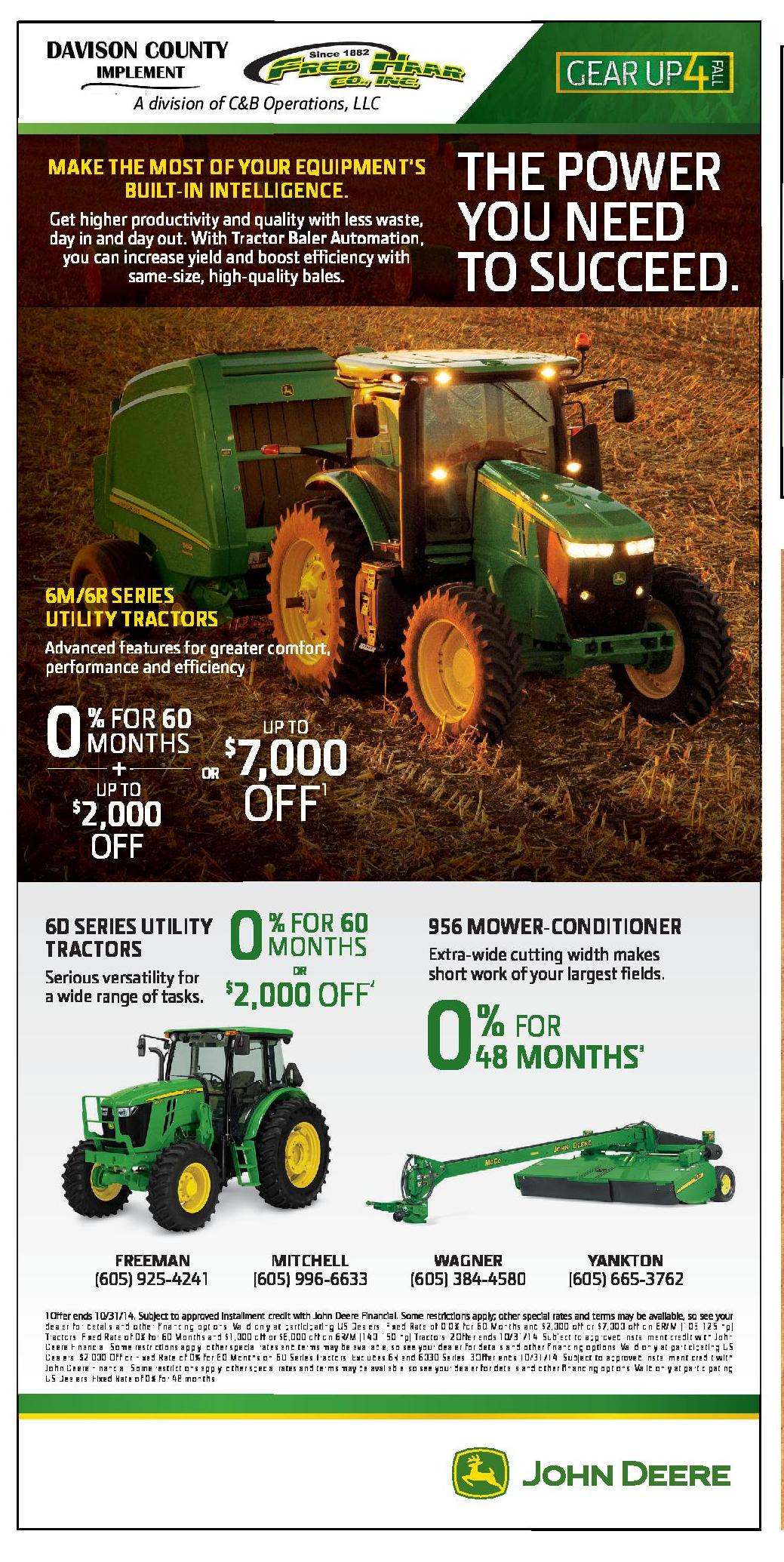



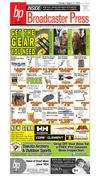
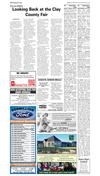
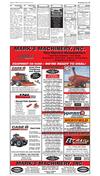
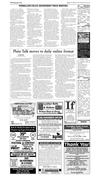
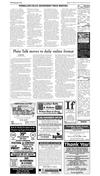


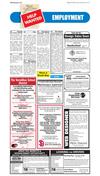
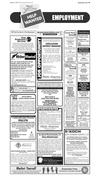
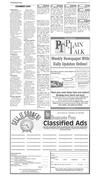

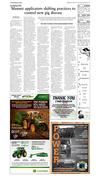
 Previous Page
Previous Page





